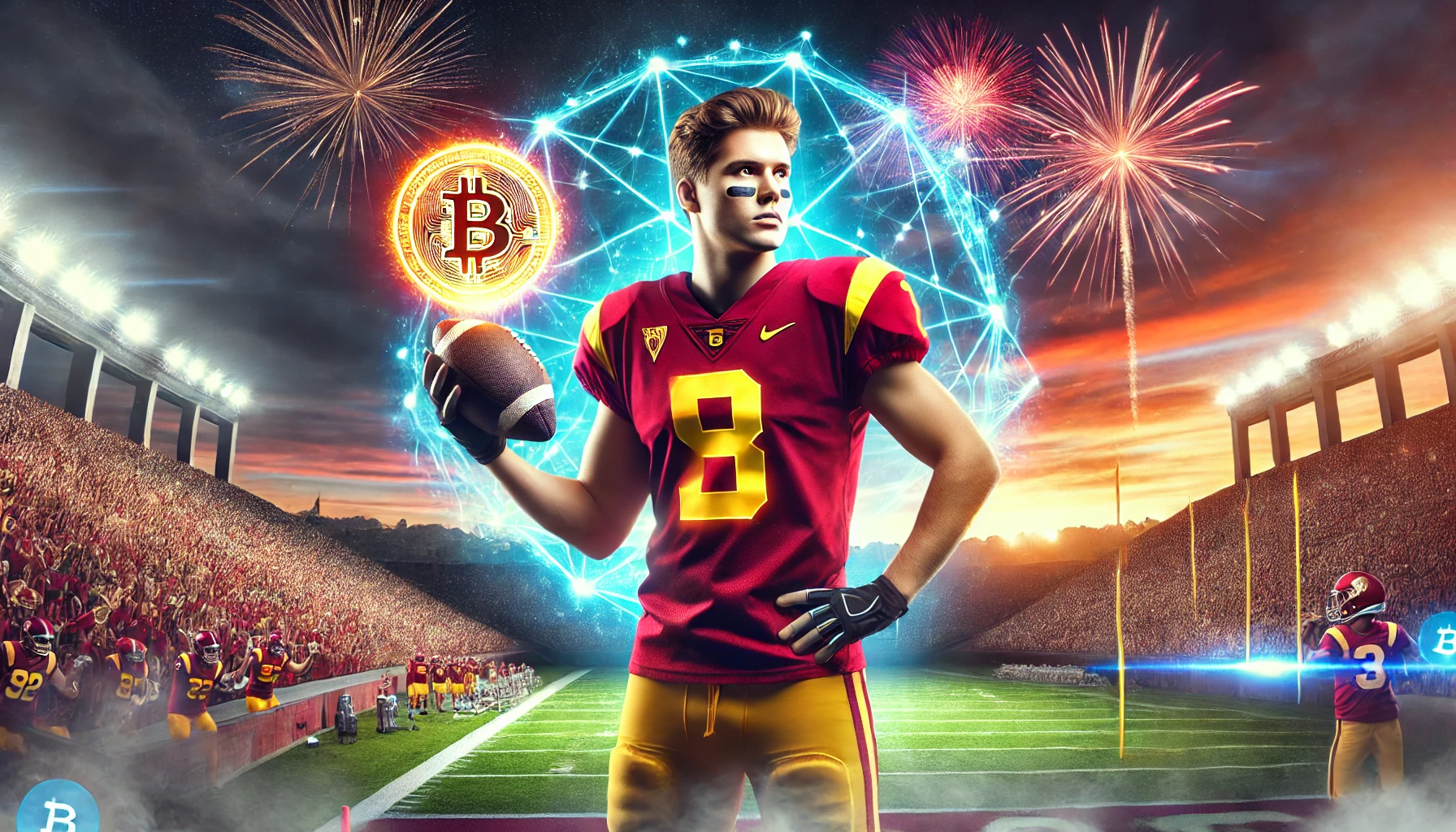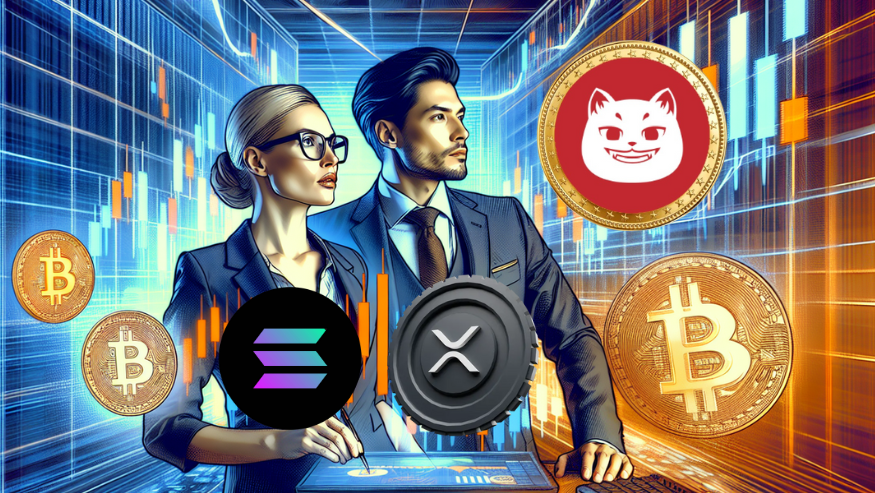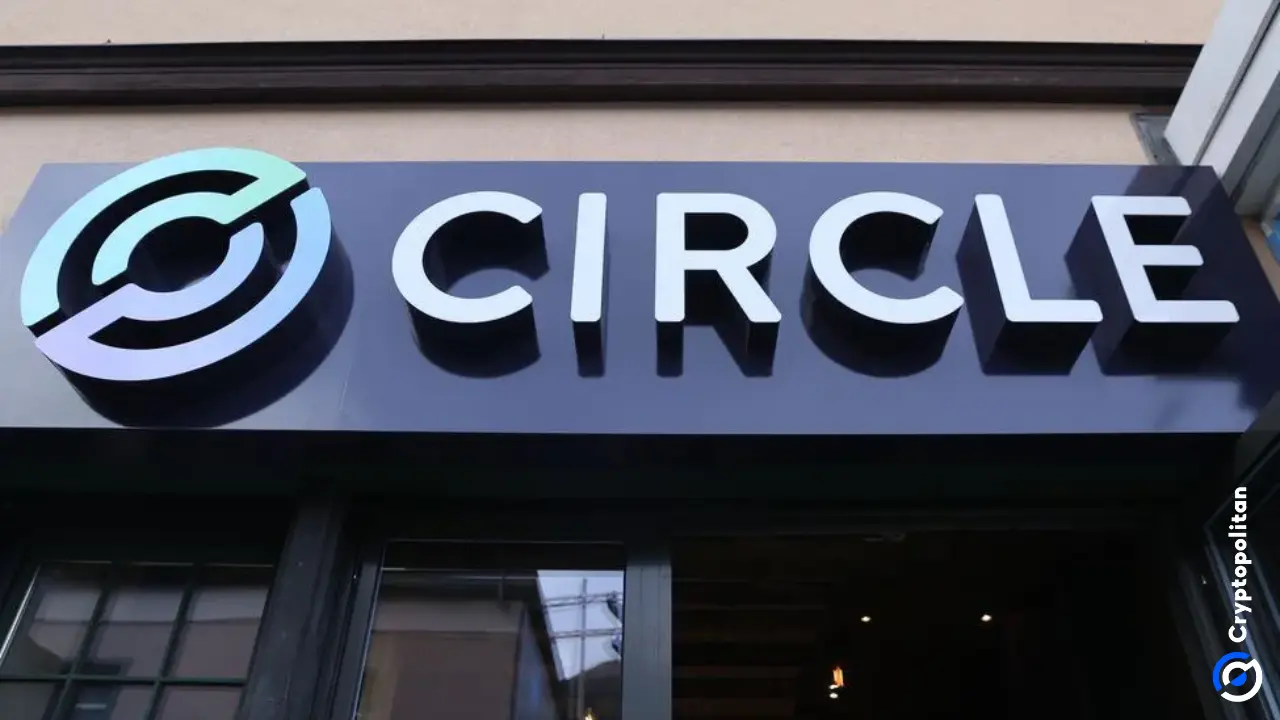Matai Tagoa’i, a heralded linebacker from San Clemente High School, will take his talents to the University of Southern California. Notably, the athletic standout has opted to receive a portion of his Name, Image, and Likeness (NIL) proceeds in the digital currency Bitcoin. The cryptocurrency payment platform Strike will facilitate the arrangement.
Embracing Cryptocurrency: A New Frontier for College Athletes
“This cuts a new path for me,” stated Tagoa’i. “By directing some of my NIL earnings to Bitcoin, I’m providing for my long-term fiscal growth.” His decision reflects athletes increasingly turning to cryptocurrency for economic empowerment and investment. Strike, known for seamlessly processing Bitcoin transactions, has previously enabled comparable agreements for pro athletes too, such as former NFL offensive tackle Russell Okung electing to convert half of his $13 million salary into Bitcoin in 2020.


The Evolution of NIL Deals in Collegiate Sports
The NCAA’s monumental 2021 ruling granting athletes permission to benefit from their name, image, and likeness commercially has completely transformed college athletics, crafting a profitable pathway for student-athletes. Tagoa’i’s revolutionary concept for his NIL agreement not solely underscores the ever-widening chances available but also constructs a standard for fiscal wisdom and progressive thinking amongst his associates.
“I feel honored to contribute to this innovative cooperation that is reimagining the coming years of athletics and finances on campuses,”
He stated that he was hoping to encourage other youthful sportsmen to envisage their economic potential.
Guiding the Next Generation: The Role of Talent Management
Marquel Martin, the head of the agency 3Point0 Labs, played a crucial part in bringing Tagoa’i on board with Bitcoin. As the CEO and founder of the talent management company, Martin has opened the door for professional athletes to enter the cryptocurrency world before.
He stressed the magnitude of financial planning for sports stars:
“Many players deal with monetary troubles following their retirements, yet we believe Bitcoin puts forth a road toward long-lasting stability and growth.”
His agency strives to school and assist athletes in making thoughtful fiscal choices that last beyond their time competing.
The Bigger Picture: Financial Literacy and Athlete Empowerment
The embrace of cryptocurrency within Name, Image and Likeness contracts highlights a shift towards fiscal literacy and empowerment on the collegiate playing field. Strike CEO Jack Mallers champions Bitcoin as a hedge versus swelling prices and an instrument for fiscal security: “Cost increases are gnawing away at the worth of cash, and antique saving strategies merely do not outweigh anymore.


Bitcoin is the first asset built to unravel this hassle and shield against swelling.” This view aligns with the escalating sentiment that athletes should leverage their earnings strength to safeguard their monetary futures.
Summing Up
For Matai Tagoa’i, accepting Bitcoin as a section of his NIL recompense marks now not only a vital milestone in his private journey but additionally displays the dynamic alterations happening within collegiate athletics. As more avid gamers discover modern-day economic possibilities, the intersection of sports and know-how keeps evolving, paving the way for a new period of athlete empowerment and financial independence with sentences of various lengths and complexity.
FAQs
1. Why did Matai Tagoa’i choose to receive part of his NIL earnings in Bitcoin?
Tagoa’i opted for the cryptocurrency in order to safeguard long-term fiscal development, referring to Bitcoin’s potential as a shield against swelling and a device for constructing financial security. He hopes his choice may inspire other youthful athletes to consider their economic futures thoughtfully.
2. What is the significance of this Bitcoin-based NIL deal?
This arrangement denotes a pioneering change in collegiate sports, highlighting how student-athletes can leverage cutting-edge monetary instruments like digital forms of money to maximize their income capacity and guarantee financial autonomy.
3. How does Strike facilitate Bitcoin payments for athletes?
The strike is a payments program that simplifies Bitcoin trades, allowing athletes similar to Tagoa’i to receive and oversee their profits in cryptocurrency seamlessly. Strike has previously worked with professional athletes, rendering it a trusted platform for such preparations.
4. What does this mean for the future of NIL deals in college sports?
Tagoa’i’s choice could pave the way for additional athletes to investigate fiscal selection options, blending sports and engineering. It signals a shift toward higher financial literacy and novelty within the collegiate sports panorama.







